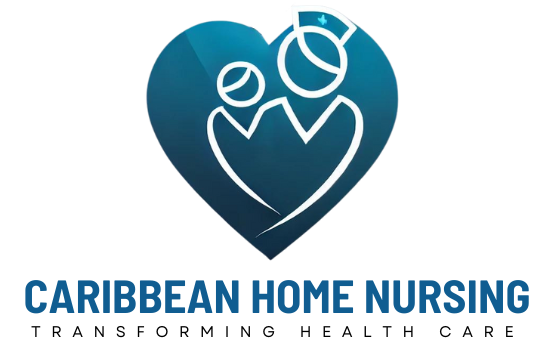Living with diabetes requires consistent care and management to maintain health and prevent complications. In Trinidad and Tobago, the increasing prevalence of diabetes has highlighted the need for accessible and affordable solutions. Home-based care is emerging as a practical, effective, and economical option for diabetic management, allowing individuals to receive tailored support in the comfort of their homes.
This guide will cover every aspect of home-based diabetic care, focusing on affordability, services, practical management tips, and local resources available in Trinidad and Tobago.
Understanding Diabetes
Diabetes is a chronic condition that affects how the body regulates blood sugar (glucose). Glucose is vital for energy, but when its levels are poorly managed, it can lead to severe complications.
Types of Diabetes
An autoimmune disease where the immune system attacks insulin-producing cells in the pancreas.
Typically diagnosed in children and young adults.
Requires daily insulin injections or the use of an insulin pump.
Diabetes:
The most common form, occurring when the body becomes resistant to insulin or doesn’t produce enough.
Often linked to obesity, sedentary lifestyles, and genetics.
Managed through lifestyle changes, oral medications, and sometimes insulin.
Why Diabetes is a Concern in Trinidad and Tobago
According to local health statistics, approximately 13% of adults in Trinidad and Tobago are affected by diabetes, with rates climbing annually.
Lifestyle factors, including diet rich in sugary and fatty foods and limited physical activity, contribute significantly to the high prevalence.
The growing number of cases underscores the importance of preventive care and effective management. Home-based diabetic care is becoming a cornerstone in addressing this national health challenge.
The Importance of Home-Based Diabetic Care
Home-based care focuses on managing diabetes through personalized and consistent support provided in a familiar environment. It eliminates the need for frequent clinic visits, making it a preferred choice for many.
Benefits of Home-Based Care
Care is delivered at home, reducing the stress and time involved in traveling to healthcare facilities.
Cost-Effectiveness:
It can be more affordable than hospital stays or frequent doctor visits, making it accessible for many families.
Individualized Care:
Services are tailored to the patient’s unique needs, including medication management, dietary planning, and lifestyle guidance.
Emotional Well-Being:
Being in a familiar setting promotes comfort and reduces anxiety, especially for elderly patients.
Family Involvement:
Family members can actively participate in care, ensuring emotional support and consistent monitoring.
Services Available for Home-Based Diabetic Care in Trinidad and Tobago
Trinidad and Tobago offers a range of affordable and effective services for individuals seeking home-based diabetic care. These services emphasize convenience, affordability, and quality.
Key Providers and Services
Comprehensive home health care, including diabetic management.
Services include blood sugar monitoring, insulin administration, dietary advice, and education on managing diabetes.
Diabetes Association of Trinidad and Tobago (DATT):
Provides educational resources, workshops, and community support for individuals managing diabetes.
Caribbean Lifestyle Diabetes Centre:
Offers personalized programs focused on diabetes self-management and long-term lifestyle changes.
What to Look for in a Provider
Qualified and experienced healthcare professionals.
Transparent and affordable pricing.
A range of services tailored to individual needs, such as diet planning, exercise routines, and mental health support.
Key Strategies for Managing Diabetes at Home
Home-based care is most effective when combined with proactive management strategies. Here are actionable steps to optimize diabetic care:
Regular Blood Sugar Monitoring
Monitor blood sugar levels as recommended by your healthcare provider.
Use reliable glucose meters and maintain a logbook to track patterns.
Follow a Diabetes-Friendly Diet
Focus on balanced meals rich in whole grains, lean proteins, healthy fats, and vegetables.
Avoid foods high in sugar, trans fats, and refined carbohydrates.
Opt for local healthy alternatives, like breadfruit and cassava, which have a lower glycemic index.
Incorporate Physical Activity
Aim for at least 30 minutes of moderate activity, such as walking, swimming, or cycling, most days of the week.
Exercise helps regulate blood sugar levels and improves overall health.
Medication and Insulin Management
Adhere strictly to prescribed medications and insulin schedules.
Discuss any concerns about side effects or dosages with your healthcare provider.
Stress Management and Mental Health
Diabetes can be mentally taxing. Practice stress management techniques such as meditation, yoga, or engaging in hobbies.
Stay Educated
Attend workshops or online webinars on diabetes management.
Leverage local resources like the Diabetes Association of Trinidad and Tobago for guidance.
Affordability and Accessibility of Home-Based Care

One of the primary advantages of home-based care is its affordability compared to conventional healthcare options. In Trinidad and Tobago, several organizations and government initiatives aim to make diabetic care accessible to all.
Cost-Saving Tips for Diabetic Care
Many organizations offer subsidized services, including free educational programs and affordable insulin supplies.
Purchase Supplies in Bulk:
Items like test strips and syringes can often be bought in bulk for discounts.
Take Advantage of Local Resources:
Government-run health facilities provide free or low-cost medications and consultations.
Insurance Coverage:
Check if your health insurance covers home-based care or diabetes-specific services.
Educational Resources and Support
Knowledge is a vital tool in managing diabetes effectively. Trinidad and Tobago boasts numerous resources aimed at educating individuals and families about diabetic care.
Local Resources
Offers educational materials, workshops, and a support network.
Public Health Clinics:
Provide free seminars and information sessions on diabetes management.
Online Learning Platforms
Websites like the Caribbean Lifestyle Diabetes Centre provide accessible, practical information and virtual consultations.
Support Groups
Joining local or online support groups connects you with others facing similar challenges. Sharing experiences and tips can be invaluable in staying motivated.
Preventive Measures and Lifestyle Adjustments
Preventing complications and maintaining health requires consistent effort and lifestyle adjustments:
Routine Health Checkups:
Regularly visit your healthcare provider to check for potential complications such as neuropathy or retinopathy.
Maintain a Healthy Weight:
A healthy weight reduces insulin resistance and helps regulate blood sugar.
Quit Smoking and Limit Alcohol:
Smoking and excessive alcohol consumption can worsen diabetes-related complications.
Stay Hydrated:
Drink plenty of water throughout the day to help regulate blood sugar levels.
FAQ based on Affordable Home-Based Solutions for Diabetic Care in Trinidad and Tobago

Q. What is home-based diabetic care?
Ans. Home-based diabetic care involves managing diabetes with professional healthcare services delivered at home. This includes monitoring blood sugar levels, administering medications or insulin, dietary planning, and providing education on effective diabetes management.
Q. Why choose home-based care for diabetes in Trinidad and Tobago?
Ans. Home-based care is convenient, cost-effective, and allows patients to receive personalized attention in the comfort of their homes. It also reduces the need for frequent hospital visits, saving time and money.
Q. What services are available for home-based diabetic care in Trinidad and Tobago?
Ans. Services include blood sugar monitoring, medication administration, dietary counseling, lifestyle management, and patient education. Providers like Caribbean Home Nursing and the Diabetes Association of Trinidad and Tobago offer comprehensive support.
Q. How can I make home-based diabetic care affordable?
Ans. You can reduce costs by using community health services, purchasing supplies in bulk, exploring government-subsidized programs, and ensuring your health insurance covers diabetes care.
Q. Can home-based care help prevent diabetes complications?
Ans. Yes, home-based care focuses on regular monitoring, medication adherence, a healthy diet, and lifestyle changes, which are essential to preventing complications like nerve damage, kidney problems, and heart disease.
Q. What lifestyle changes can I make to manage diabetes at home?
Ans. Follow a diabetes-friendly diet with whole grains, lean proteins, and vegetables.
Exercise regularly, such as walking or swimming.
Monitor blood sugar levels consistently.
Avoid smoking and limit alcohol intake.
Q. Are there local resources for diabetic education and support?
Ans. Yes, organizations like the Diabetes Association of Trinidad and Tobago and Caribbean Lifestyle Diabetes Centre provide educational materials, workshops, and support groups for individuals managing diabetes.
Q. How can family members help with home-based diabetic care?
Ans. Family members can assist by preparing balanced meals, ensuring medication adherence, providing emotional support, and helping with daily tasks like monitoring blood sugar levels.
Q. Is home-based care suitable for all diabetic patients?
Ans. Home-based care is suitable for most diabetic patients, especially those with mobility issues, busy schedules, or a preference for personalized care in a familiar setting. Consult your healthcare provider to determine if it’s right for you.
Q. Where can I find more information about diabetic care in Trinidad and Tobago?
Ans. You can visit the websites of local organizations like the Diabetes Association of Trinidad and Tobago, Caribbean Home Nursing, or public health clinics for more information on resources and services.
Final thought on Affordable Home-Based Solutions for Diabetic Care in Trinidad and Tobago
Affordable home-based solutions for diabetic care in Trinidad and Tobago provide an effective way to manage diabetes without compromising on comfort or quality. By leveraging available resources, adopting practical strategies, and seeking support, individuals can lead healthier lives and keep their condition under control.
Trinidad and Tobago’s healthcare landscape is steadily evolving, offering more accessible and tailored care options for those living with diabetes. The key to success lies in education, consistency, and making use of the comprehensive home-based services available locally. With the right tools and support, managing diabetes can become less of a burden and more of a well-integrated part of life.







